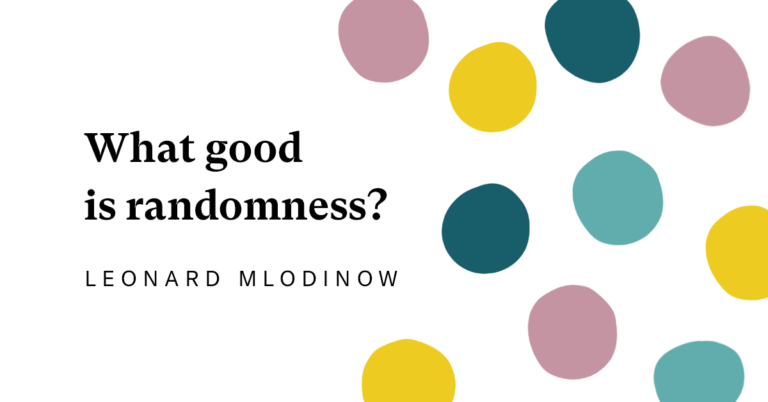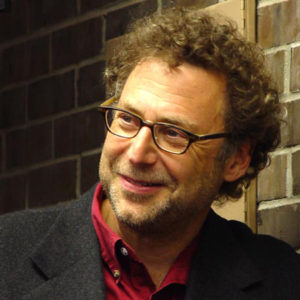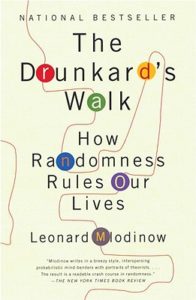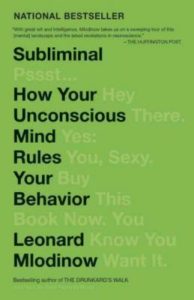Leonard Mlodinow
The Daily Opportunity in Randomness
The physicist Leonard Mlodinow changes how we think about the agency we have in shaping our own destinies. As a scientist, he works with principles like Brownian motion, by which Einstein helped verify the existence of molecules and atoms. As the child of Holocaust survivors, he dances with the experience we all have: that life never goes as planned, and yet the choices we make can matter. “The course of your life depends on how you react to opportunities and challenges that randomness presents to you,” he says.

© All Rights Reserved.
Guest

Leonard Mlodinow is a physicist and the author of several books, including The Drunkard’s Walk: How Randomness Rules Our Lives, Subliminal: How Your Unconscious Mind Rules Your Behavior, and his latest, Elastic: Flexible Thinking in a Constantly Changing World.
Transcript
[music: “Sun Will Set” by Zoë Keating]
Krista Tippett, host: I’ve had hundreds of big conversations, and my conversation partners share wisdom I carry with me wherever I go. The physicist Leonard Mlodinow changed the way I think about the agency we have in shaping our own destinies. As a scientist, he works with principles like Brownian motion, by which Einstein helped verify the existence of molecules and atoms. And as the child of Holocaust survivors, he dances with the experience we all have that life never goes as it’s planned — and yet the choices we make can matter.
This is Becoming Wise. I’m Krista Tippett.
Ms. Tippett: You write about your father’s — a story he told you about how he got the job in the bakery at Buchenwald, the concentration camp, his sense that this is just random. Tell that story.
Leonard Mlodinow: Oh, that was in The Drunkard’s Walk. The book is about randomness in life. And to me, when I was thinking about writing that book, I was almost shaken by the realization that I’m a random effect of something very bad. And I hope that for me — I’m glad I’m here, but I’m only here because Hitler or the Nazis killed my father’s previous family. And that led to my being here. That was a very hard to thing to face, in a way, that — what’s the meaning of my life, when it arose from something like that?
And in that story, he was in the Buchenwald concentration camp, and he stole a loaf of bread from the bakery. And the baker — I guess there were a certain number of people who had access. They lined them all up and brought the guys with the guns. And they said, who stole the bread? And my father didn’t say anything. And then they said, okay, we’re going to start at this end of the line, and we’re going to shoot everybody until either you’re all dead or the thief steps forward. So he puts the gun to the head of the first person.
My father, at that point, steps forward and admitted that he stole the bread. And he told me that it wasn’t a heroic thing, that — he didn’t do it out of heroism. He did it — purely practical that these guys are all going to die, and I’m going to die, too, or I’ll just be the only one. So he stepped forward. Instead of killing him, though, the baker acted like God and somewhat arbitrarily took him under his wing and gave him a job as his assistant in the bakery. So he had a much better job after that, based on that incident. And it just shows you that even in the midst of all this cruelty, there’s randomness or — I don’t know what — whim? I don’t know if the guy — I don’t know if he was being human and let some of his humanity peek out, or he wanted to play like God. I don’t really know what was the person’s motive, but that’s one of many things that happened to my father. If it had happened differently, I wouldn’t be here, and my kids wouldn’t be here. Everything would be different in that lineage.
Ms. Tippett: One of the things that’s so fascinating is how quantum physics has presented a picture of the world that is so much more of reality, the way things work — that is so much less ordered, more — there’s chaos, there’s randomness, and it wasn’t there for Newton or even for Einstein. Or they didn’t want — Einstein didn’t want those things to be there. And one of the things you say is, “Anything that is possible eventually will occur.” “Just wait long enough and strange things will happen.” But still, there’s an order to it.
Mr. Mlodinow: Doesn’t your life work that way? [laughs]
Ms. Tippett: Yeah. [laughs] But here’s the out; here’s the opening I feel you give. Here’s something else you wrote: “The outline of our lives, like the candle’s flame, is continuously coaxed in new directions by a variety of random events that, along with our responses to them, determine our fate.” You say that we are driven to see patterns and create patterns where the patterns aren’t there. But it seems to me that you’re also presenting our responses as mattering. There is randomness, and then you talk about that even though that is true, the number of chances taken, the number of opportunities seized does make a difference. It does shift things. Can you explain that in scientific terms?
Mr. Mlodinow: Yeah, I was thinking about Brownian motion, so that says it all. No, I’m just kidding. [laughs] The drunkard’s walk, which is sometimes called the random walk, comes from a jagged path that particles in Brownian motion seem to take for no apparent reason. In Brownian motion — people looked at this in the 19th century — they noticed that little grains of pieces of pollen would jiggle around for no apparent reason in liquid. And they thought at first maybe that was a life force, because there was no force on it. Maybe that’s what was jiggling, because it was pollen. And they eventually figured out, and Einstein actually is the one who explained it, that this jiggling comes from the impact of the molecules on the pollen, pushing it this way and that way. And I saw a parallel with our lives, because when you look at your life, if you had to sit down and think about — and I’m talking about in detail, not just the headlines — if you think about all the details of what happened to you, you will find that there was a time where you had the extra cup of coffee, where if you hadn’t, you wouldn’t have met Person A. Or you probably don’t realize that if you hadn’t done this, you would have gotten into a car crash but you didn’t, because you were a little bit later and the drunk guy hit someone else or whatever.
When I looked back in my life, or I looked at the life of certain celebrities, I could find so many instances like that. And I had fun tracing some of them, how little things make a big difference. And what they really do is they raise opportunities for you. Or they raise challenges. And the course of your life depends on how you react to those opportunities and challenges that the randomness presents to you. If you’re awake and paying attention, you will find that things happen. They might seem good, they might seem bad. But the important thing is how you reacted to it.
[music: “Sun Will Set” by Zoë Keating]
Ms. Tippett: Leonard Mlodinow was on the faculty of Caltech for many years and has written five bestselling books including co-authors like Stephen Hawking and Deepak Chopra. He was also a screenwriter for several episodes of my favorite Star Trek: The Next Generation.
Becoming Wise is produced at On Being Studios, which is located on Dakota land. Our team is Marie Sambilay, Lily Percy, and Chris Heagle. And our theme music is provided and composed by Zoë Keating.
Books & Music
Recommended Reading
The On Being Project is an affiliate partner of Bookshop.org and Amazon.com. Any earnings we receive through these affiliate partnerships go into directly supporting The On Being Project.









